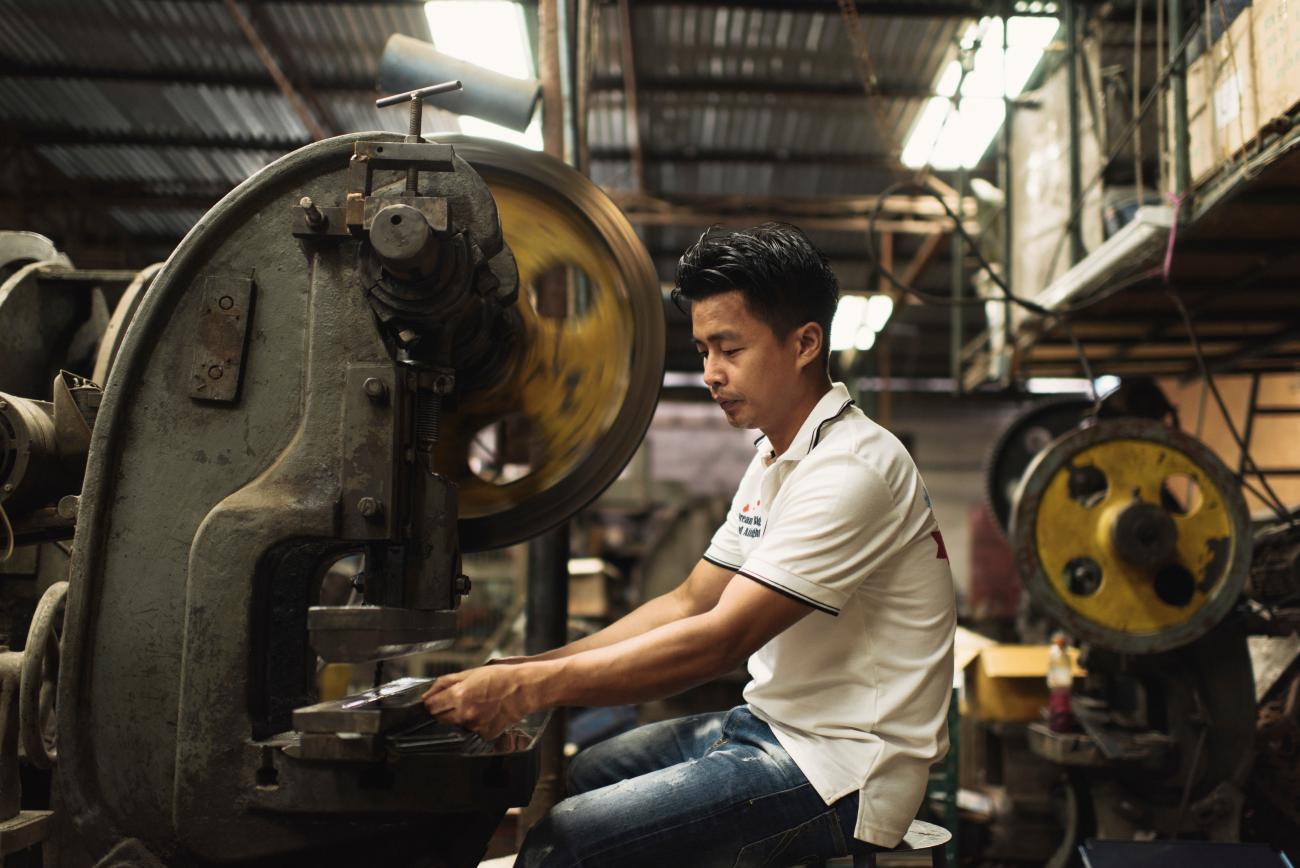The International Organization for Migration (IOM) recently launched its new human resources guidebook on Employer Obligations and Cultural Sensitivity, aimed at helping Thai businesses engaging with migrant workers to better comply with Thai labour laws, ensuring human rights, cultural sensitivity and respect.
“Thailand is home to nearly 4 million migrant workers from Cambodia, Lao People’s Democratic Republic, Myanmar and Viet Nam who have been contributing to the Thai economy. However, not all employers of these migrant workers are aware that many Thai labour laws apply to the migrant labour in the same way they apply to Thai workers,” said Geraldine Ansart, Chief of Mission at IOM Thailand. “Many also wonder how to best manage a culturally diverse workforce,” she added.
With financial support from IKEA Supply AG and Laudes Foundation, IOM developed the Human Resource Guidebook that consists of two parts: the first focuses on information about the rights and responsibilities of employers as prescribed in Thai labour laws and regulations. The second provides an understanding of how to apply cultural sensitivity in the workplace among workers from Cambodia, Myanmar and Thailand, with tips for employers and human resource officers to improve workplace communications.
When businesses ensure that the basic rights of migrant workers under Thai laws are met and when they know how to engage with a culturally diverse workforce, they can create a workplace environment where migrant workers feel respected, accepted, and valued.
Moreover, the business environment is rapidly changing, with increased interest and demand of consumers for sustainably and ethically produced goods and increased frameworks governing business and human rights. Businesses that are able to demonstrate the ability to adapt and adjust to a rapidly changing regulatory framework and to promote diversity in the workforce are more likely to boost their competitiveness and advance their reputation as an employer of choice among workers and customers.
“Being responsible for the total supply chain gives IKEA the unique opportunity to make a positive difference for people, society and the planet,” said Kanjana Suktat, Sustainability Compliance Auditor at IKEA Supply AG. “It is important for us to create a positive social impact across the IKEA value chain. A decent and inclusive work environment is not only good for people but beneficial to businesses as well,” she added.
The Human Resource Guidebook on Employer Obligations and Cultural Sensitivity is available in:
English: https://bit.ly/3A5cjkK / Thai: https://bit.ly/3jvUtl8
Hear from IOM and IKEA Supply AG about the Guidebook on YouTube.
This initiative is part of IOM’s Corporate Responsibility in Eliminating Slavery and Trafficking in the Fashion Industry (CREST Fashion).
Note to Editor
IOM’s Corporate Responsibility in Eliminating Slavery and Trafficking in the Fashion Industry (CREST Fashion) partners with multi-national enterprises and local companies operating in South Asia and Southeast Asia's apparel and home textile supply chains to promote responsible business conduct in line with the United Nations Guiding Principles on Business and Human Rights (UNGPs).
For more information, please contact IOM at CRESTThailand@iom.int
Original article published on IOM Thailand.





